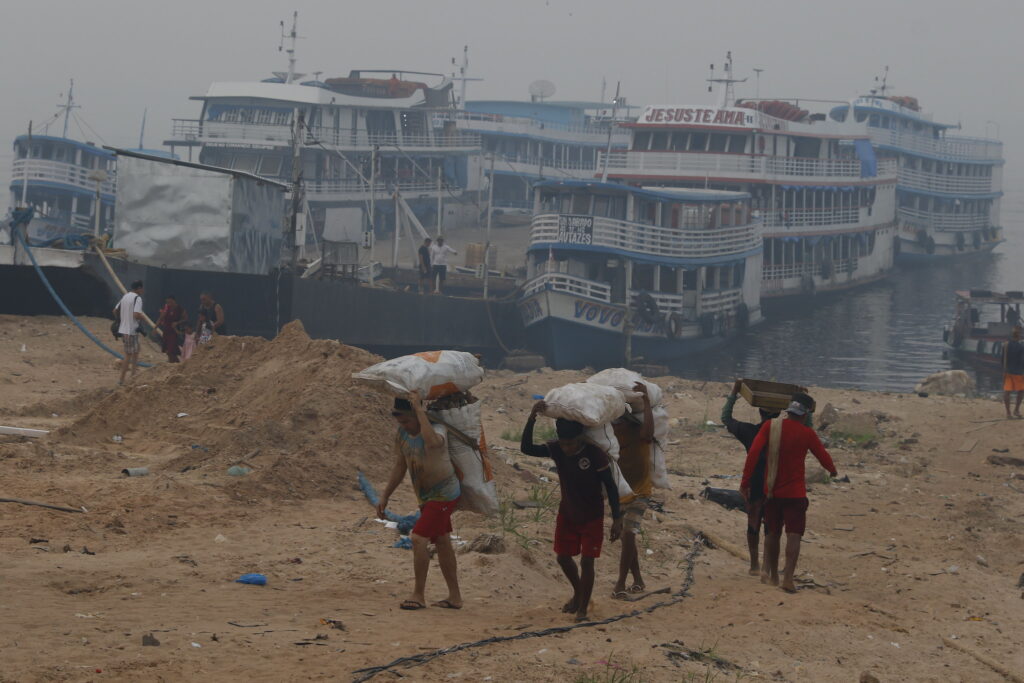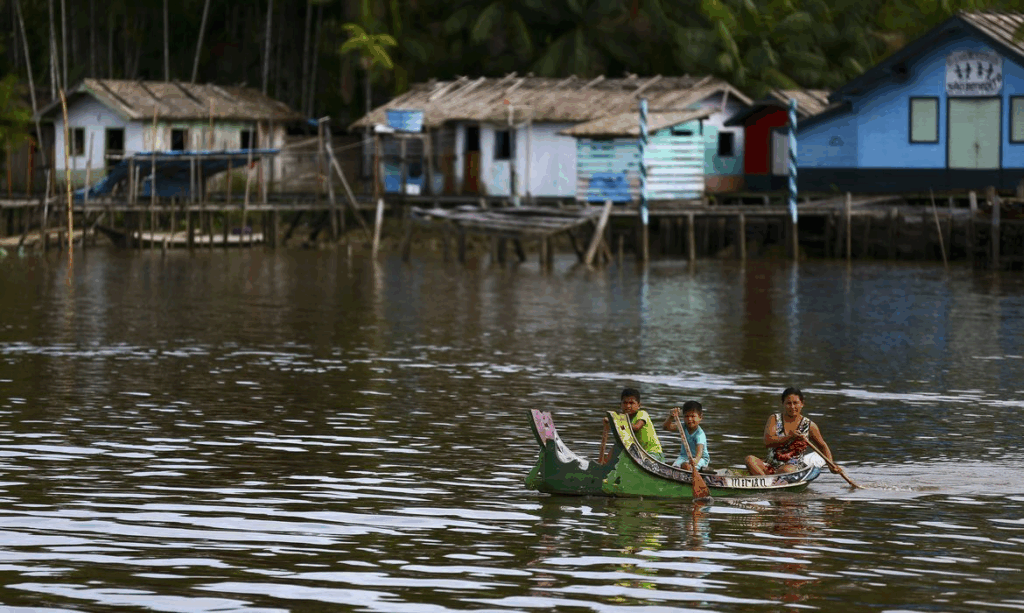One-third of the population of the Brazilian Amazon reports impacts of climate change
14 de October de 2025

By Fred Santana – From Cenarium
MANAUS (AM) – An unprecedented survey of 4,037 residents of the Legal Amazon, released this Wednesday, the 8th, shows that 32% of the region’s population report having been directly affected by climate change. The percentage rises to 42.2% among those who identify as members of traditional peoples and communities, such as Indigenous, quilombola, and riverside populations.
The information comes from the survey More Data, More Health – Climate and Health in the Legal Amazon, conducted by Umane and Vital Strategies between May 27 and July 24, 2025. The study interviewed residents of the nine states in the region to map impacts on health and daily life.
Among the most commonly reported day-to-day effects, respondents cited higher electricity bills (83.4%), rising average temperatures (82.4%), increased air pollution (75%), greater frequency of environmental disasters (74.4%), and rising food prices (73%).

When asked about experiencing climate events in the past two years, 64.7% reported heat waves; 29.6% mentioned persistent drought; 29.2% recorded forest fires with intense smoke; 28.7% reported deforestation; and 26.7% pointed to worsening air quality.
The research also highlights that 19.9% of respondents cited worsening water quality, and 17.1% mentioned problems with food production. According to the technical lead of the study at Vital Strategies, these percentages represent approximately five million people, making the impact of climate change on access to essential goods and services even more evident.
For Thais Junqueira, superintendent of Umane, facing the climate crisis in the Amazon is more than an environmental agenda, it is a public health and inequality-reduction agenda. “At such an important moment, with the arrival of COP30, this module of More Data, More Health aims to bring unprecedented data focused on local specificities, to inform public policies that protect territories and their populations, always with an eye toward reducing inequalities,” she said.
Differences among peoples
The data show discrepancies between the general population and those who identify as belonging to traditional peoples and communities. Among these groups, 24.1% reported worsening water quality and 21.4% reported problems in food production, compared to 16.5% and 13.8%, respectively, among those who do not identify with these communities. The study also shows that 48.4% of people from traditional peoples and communities know someone who has been directly affected by climate change, compared to 32.8% among the rest of the population.

Regarding perception and behavior, 88.4% of respondents believe that climate change has occurred in Brazil and around the world over the past two years, and 90.6% say that global warming is already a reality. Half of the population (53.3%) reported having reduced practices they believe contribute to worsening the problem, 64% separate waste for recycling, and 74.9% usually turn off lights—this rate reaches 79.7% among women. The belief that it is possible to take action to help solve climate change is more frequent among traditional peoples and communities (55.7%) than among others (39.8%).
“These groups are more vulnerable because they live in areas of climate risk and depend directly on natural resources for subsistence,” explains Luciana Vasconcelos Sardinha, Deputy Director of Noncommunicable Diseases at Vital Strategies.

